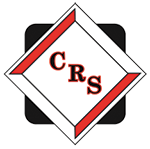Keeping accurate healthcare records is really important for doctors, nurses, and other healthcare professionals. These records help them understand a patient’s history and provide the right care. One way to make sure these records are correct is through Remote Data Abstraction. This process involves experts who work from different locations to gather and organize important information about patients. Let’s talk about why Remote Data Abstraction is so important and how it helps both healthcare providers and patients.

What is Remote Data Abstraction?
Remote Data Abstraction is when trained professionals collect and organize data from patient records. These professionals work from different locations, not necessarily in the hospital or clinic. They focus on gathering specific information that doctors need, like details about heart treatments or other special care. The data they collect is then put into a database, which makes it easy for doctors and nurses to find the information they need.
Why is Accurate Data So Important?
If medical records are accurate, doctors can understand a patient’s medical history and provide the appropriate treatment. For example, if a doctor is aware of a patient’s past surgeries or allergies, they can avoid prescribing the wrong medication or treatment. Accurate data is essential to the healthcare industry because it helps doctors make the best decisions for their patients.
Remote Data Extraction ensures that all information in a patient’s record is correct and up-to-date. This process helps prevent mistakes that could lead to wrong diagnoses or treatments, which could be dangerous for the patient.
How Remote Data Abstraction Helps Healthcare Providers
Remote Data Abstraction is very helpful for doctors, nurses, and other healthcare providers. By organizing patient information, it helps them keep track of how well a treatment is working. For example, in heart care, doctors need to know how a patient is recovering after surgery. If they have accurate information, they can see if the patient needs any changes in their treatment plan.
This process also saves time for healthcare providers. Instead of spending hours going through patient records, they can rely on the organized data provided by Remote Data Abstraction. This allows them to spend more time focusing on their patients.
The Benefits of Remote Registry Services
Many healthcare organizations use remote registry services to manage their data. These services are cost-effective because they don’t require hiring full-time staff to handle data. Instead, they rely on experts who specialize in data management. These professionals ensure that the data is accurate and easy to access.
Using remote registry services also allows healthcare providers to focus more on patient care. Managing data can be time-consuming, but with remote registry services, healthcare providers can leave that task to the experts and concentrate on their patients.
Ensuring Compliance with Remote Data Abstraction
Following rules and regulations is very important in healthcare. Remote Data Abstraction helps healthcare organizations ensure they meet these regulations. This is especially important in specialized care, like heart care, where the rules are very strict.
By using remote registry services, healthcare providers can be confident that their data is being handled correctly. These services are run by professionals who know the regulations and make sure that all data is compliant. This not only protects the healthcare facility from penalties but also ensures that patient information is safe and secure.
The Future of Remote Data Abstraction in Healthcare
As technology develops, Remote Data Abstraction will become even more crucial. An increasing number of healthcare providers are realizing the advantages of hiring professionals to handle their data management, and this trend will continue as the demand for precise and current patient records rises.
In the future, we might see even more advanced tools used in data abstraction. For example, computers might help analyze large amounts of data faster. But even with these tools, human expertise will still be necessary to make sure the data is accurate and used properly.
Choosing the Right Remote Registry Services
When selecting a partner for Remote Data Abstraction, it’s important to choose a company that has experience and a good track record. Not all remote registry services are the same, so it’s important to do some research and find one that fits your specific needs.
For example, if your healthcare facility specializes in heart care, you should look for a company that has experience in that area. It’s also important to choose a provider that offers flexible services that can be tailored to your needs.
Improving Patient Care with Remote Data Abstraction
The main goal of Remote Data Abstraction is to improve patient care. When doctors and nurses have accurate and organized data, they can make better decisions, which leads to better patient outcomes.
For example, in heart care, having accurate data allows doctors to track how well a patient is recovering. If the data shows that a patient is not improving, the doctor can make changes to the treatment plan. This personalized care is only possible with accurate data, which Remote Data Abstraction provides.
Conclusion
In summary, Remote Data Abstraction is a key tool in keeping healthcare records accurate. It helps healthcare providers make better decisions, improves patient care, and ensures that data is managed according to regulations. Using remote registry services is a cost-effective way to handle data, allowing healthcare providers to focus on what matters most taking care of their patients. Remote Data Abstraction will remain essential to the future of healthcare as long as technology progresses.


